Fellows
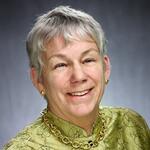 |
Elizabeth BallantineEBA AssociatesElizabeth Ballantine was elected to the Board of Trustees in 1980 and served as Board Chair from 1994-98. She became a Life Trustee in 2003. Ballantine earned a B.A. and Ph.D. from Yale University, and a J.D. from American University. Since 1999, Ballantine has been president of EBA Associates, a consulting firm. From 1993 to 1999, she was an attorney in the Washington, D.C., law firm of Dickstein, Shapiro, Morin and Oshinsky LLP. From 1990 until 1993, she worked as a private consultant advising clients on international business investments. She was a staff reporter for the Des Moines Register from 1976-1982. She has served as independent director of the Principal Financial Group of Des Moines, IA since 2004 and as a director of the McClatchy Newspaper Company of Sacramento, CA since 1998. From 2006 to 2012 she served on the Board of Directors of the Association of Governing Boards of Colleges and Universities, and presently serves on the Board of Directors of the Durango Herald, Inc., of Durango, CO, and as Vice Chair of the Board of the American University of Paris, France |
 |
John BarghSusan Nolen-Hoeksema Professor of Psychology and Professor of Cognitive Science and of ManagementSusan Nolen-Hoeksema Professor of Psychology and Cognitive Science, and Professor of Management
Ph.D., 1981, University of Michigan
The ACME lab researches the unconscious or implicit influences on social judgment, motivation, and behavior. Most recently this research has focused on embodied cognition effects, or influences of physical experiences (such as cleansing one’s hands, holding something warm or rough) on metaphorically related social variables (physical warmth leading to feelings of physical warmth, for example). One interesting new line of this research has focused on how social goals and political attitudes can be influenced by satisfaction of underlying physical-level motivations; for example, immunization against the flu virus influences attitudes towards immigration (as ‘invaders’ of one’s ‘cultural body’), and feelings of physical safety reduce one’s need to feel ‘socially safe’ as after rejection or other ‘cold’ social experiences. |
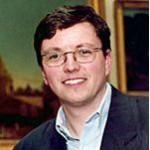 |
Timothy BarringerPaul Mellon Professor in the History of ArtTim Barringer is Paul Mellon Professor of the History of Art. He specializes in the eighteenth-, nineteenth- and twentieth-century art of Britain and the British Empire, nineteenth-century American and German art and museum studies. Following positions at the Victoria and Albert Museum, the Universities of London and Birmingham in Great Britain, he came to Yale in 1998. His books include Reading the Pre-Raphaelites (Yale, 1998), Men at Work: Art and Labour in Victorian Britain(Yale, 2005) Opulence and Anxiety (2007), catalogue for an exhibition at Compton Verney, and Before and After Modernism (Central St Martins, 2010). |
 |
Fatema BasraiYale School of Public HealthFatema is the Managing Director of the Sustainable Health Initiative at the Yale Institute for Global Health and InnovateHealth Yale at the Yale School of Public Health. With over a decade of experience in the health and education sectors, she is deeply committed to guiding the next generation of social entrepreneurs, helping them shape impactful ventures that address urgent global challenges. A first-generation US college graduate and immigrant, Fatema’s journey is driven by a dedication to equity, inclusion, and sustainable change. Her work spans the design and management of social ventures, strategic leadership, and fostering meaningful interpersonal connections with and for social innovators across the world with a focus on the Global South. Recognized as one of Forbes 30 Under 30 in Education, Fatema brings a unique blend of passion and expertise to her roles. Her leadership, advocacy, and coaching contribute to the evolution of health and education sectors, inspiring a more inclusive and brighter future for all. Email Fatema Basrai |
Kevin BeharPsychiatryEmail Kevin Behar |
|
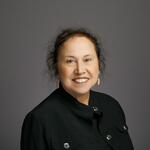 |
Deborah (Deb) BellmoreAssistant Director of Operations, Trumbull CollegeDeb began her Yale career at Yale at the Oral History, American Music project which is now one of Sterling’s special collections. It is an active archive of interviews with American composers. Following, Deb ran the Council of Masters office. (that is what it was called at that time) She enjoyed working with all the residential colleges before settling in to Trumbull College. It was a nice transition to become an active member of one Yale community. Email Deborah (Deb) Bellmore |
 |
Lucas BenderAssociate Professor Term of East Asian Languages and LiteraturesI am a scholar of Chinese literature and thought, specializing in the period from roughly 200 CE through 1100. My current work centers on the positive conclusions we can draw from the vast amount we don’t know. This theme is at the core of my first book, on the poet Du Fu 杜甫 (712–770), and it is also pertinent to my second project, on the much-remarked “pluralism” of medieval China. I am interested in understanding how the medieval Chinese tolerance for obscurity eventually gave way to a more optimistic account of our capacity for knowledge, and whether that more optimistic account may sometimes have been linked to a decreased interest in difference and diversity. I teach courses on Chinese literature from the Han dynasty through the Song, Chinese philosophy, and comparative topics. Email Lucas Bender |
 |
Michael BennickAssociate Clinical Professor Internal Medicine EducationDr. Michael Bennick is a gastroenterologist in New Haven, Connecticut and is affiliated with Yale New Haven Hospital. He received his medical degree from Lewis Katz School of Medicine at Temple University. |
 |
James BensonDirector of Culinary Excellence Yale HospitalityA native to California, Benson was raised in the San Francisco Bay Area James currently resides in Fairfield Connecticut with his wife Kathleen and Daughters Caitlin and Annabelle. James graduated from the Hotel and Restaurant Management school at the City College of San Francisco. Inspired and driven by his Italian roots he set off to Italy to apprentice at the best restaurants on the Riviera Ligure where he landed a job at the 2 Star Michelin Balzi Rossi in Ventimiglia. Upon returning, he joined the opening team at Le Cirque 2000 in New York. After a couple of years, James moved to Las Vegas to take the role of Executive Sous Chef at Le Cirque and Osteria del Circo at the Bellagio. Following the Bellagio Benson joined Wynn as a member of the pre-opening team as Chef de Cuisine of Catering and Special Events. Over the course of his time with Wynn Resorts James held the positions of Chef de cuisine and Executive Chef of Catering and most recently as Executive Chef of Food and Beverage of Wynn and Encore in Las Vegas. Benson currently is the Director of Culinary Excellence responsible for overseeing the culinary vision, recipe, training, menu and product development provide leadership and operational support across departments and seek ways to strengthen the culinary program, developing talent and create innovation. Throughout his career Benson has been honored to have been a guest chef at several national and international food events which included dinners at the James Beard House, Guest Chef at The Shangri-La Hotel in Bangkok, and at the Hotel Adlon in Berlin, Germany. He received numerous accolades in publications such as Gourmet Magazine, Wine Spectator and Grace Ormonde to highlight a few. Email James Benson |
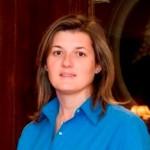 |
Jasmina Beširević ReganAssociate Dean for Undergraduate Education, Yale College and Associate Dean for Graduate Education, Yale Graduate School of Arts and SciencesJasmina Beširević Regan graduated from Augsburg College summa cum laude earning the Bachelor of Arts degree in Sociology in 1997. She went on to earn her Ph.D. in Sociology from YaleUniversity in 2004 having also earned the Master’s degrees there. Her dissertation on ethnic cleansing in the Bosnian city of Banja Luka focuses on the emergence of a Bosnian Muslim refugee community. Jasmina is currently an Associate Dean at the Graduate School. She serves on numerous university committees and is part of various speaking engagements on student life at Yale. In addition, she is a Lecturer in the Department of Sociology, Global Affairs, and Ethnicity, Race and Migration at Yale. Her teaching and research interests include genocide and ethnic conflict, identity and nationalism. Her current work focuses on the Bosnian Muslim identity and disintegration of former Yugoslavia. She has presented papers on the sociology of genocide at a number of professional meetings and has been invited to speak at international conferences both in the U.S. and abroad. Email Jasmina Beširević Regan |
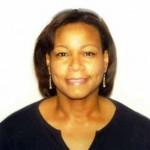 |
Ruth BlakeEdward P. Bass (BS’67, ARTA ’72) Professor of Earth and Planetary Sciences and Professor of Chemical Engineering and of EnvironmentRuth Blake’s research has been the characterization and interpretation of oxygen isotope fractionations in the PO4-water system during biogeochemical cycling of phosphorous in natural waters and sediments. A major area of current research surrounds characterization and “ground-truthing” of 18O/16O ratios (18O) signatures of phosphates in mid-ocean ridge hydrothermal Fe-oxide deposits, with the goal of identifying reliable 18Op biosignatures and isotopic tracers of microbial activity and phosphorous cycling at mid-ocean ridges, in Earth’s deep biosphere, Mars and beyond. Many of the activities her laboratory are devoted to development of methods for extraction and O isotopic analysis of PO4 in a range of geologic, biologic and extraterrestrial materials including deep-sea sediments, ancient rocks; biomass, and Martian soil analogue materials. |
 |
Hal BlumenfeldMark Loughridge and Michele Williams Professor of Neurology and Professor of Neuroscience and of Neurosurgery
Dr. Blumenfeld is the Loughridge-Williams Professor of Neurology, Neuroscience, and Neurosurgery at Yale University. He is an expert on brain mechanisms of consciousness and altered consciousness in epilepsy. He directs the Yale Clinical Neuroscience Imaging Center (CNIC), is an active epilepsy neurologist, and leads multi-disciplinary research largely funded by NIH. In addition to authoring numerous peer-reviewed articles he also wrote a widely acclaimed textbook, “Neuroanatomy through Clinical Cases,” used in over half the medical schools in the United States. Email Hal Blumenfeld |
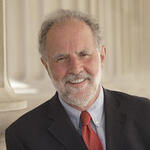 |
William BoughtonAssociate Professor of Music; Director, Yale Symphony OrchestraWilliam Boughton was born into a musical family. His grandfather was a composer, his father a professional viola player, and his mother a vocalist. After studying cello at the New England Conservatory, Guildhall School of Music, and Prague Academy, he entered the profession in London, playing with the Royal Philharmonic Orchestra and London Sinfonietta and for the BBC. Playing in orchestras led Boughton to discover his passion for conducting, which he pursued in studies with George Hurst and Sir Colin Davis. Boughton formed the English Symphony Orchestra in 1980, commissioned 21 new works and made 80 recordings many of which reached the Top 10 in the Billboard Charts. He was also Principal Conductor of the Jyvaskyla Sinfonia in Finland and has conducted orchestras from San Francisco to St Petersburg and from 2007 -2019 Boughton was the 10th Music Director of the New Haven Symphony Orchestra with whom he twice earned an ASCAP Award for Adventurous Programming in 2011 and 2014. At Yale, Boughton teaches graduate-level classes in Score Reading and Analysis and a combined Undergraduate/Graduate class in Conducting. He is the Music Director of the undergraduate Yale Symphony Orchestra. He is currently researching for a book on the Life and Music of the English composer Nicholas Maw, who was a visiting Professor of Music at Yale in 1984 and 89. Awards: Gramophone Magazine Critic’s Choice for recording of Walton’s Violin Concerto and First Symphony with NHSO (2010), ASCAP Award for Adventurous Programming with NHSO (2011 & 2014), Yale School of Music – Cultural Leadership Citation, Distinguished Contribution to Music (2019). Email William Boughton |
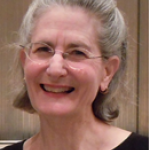 |
Susan BradyRetired, Archivist Beinecke LibrarySusan Brady has been an archivist and librarian at Yale for over 25 years, and currently is an archivist at the Beinecke Library. Specializing in performing arts archives, she processes (catalogs) archival collections and assists readers in identifying materials related to their research topics. She serves as a Personal Librarian to Trumbull College freshmen and sophomores. Originally from Austin, Texas, Susan has undergraduate and graduate degrees in Theater, and a Master’s degree in Library and Information Science from the University of Texas at Austin. Susan loves to travel, hike, and attend theater, dance, and music performances. She is a yoga practitioner and teacher. Email Susan Brady |
 |
William BrainardProfessor Emeritus of EconomicsBrainard is a specialist in economic theory, macroeconomics, and monetary theory. He has taught at the University since 1962. His seminal paper “Uncertainty and the Effectiveness of Monetary Policy” (1967), analyzing how the conduct of policy should be affected by uncertainty about its impact, is still widely cited by policy makers. A frequent collaborator with Nobel Prize winning Yale economist James Tobin, he developed with Tobin the concept of “q” to help explain the way financial markets influence investment and economic activity. Brainard was provost of the University from 1981 to 1986 and twice served as director of the Cowles Foundation for Research in Economics. He also chaired the Department of Economics. He was named the Frederick William Beinecke Professor of Economics in 1987 and became the first faculty member to hold the Arthur M. Okun Professorship in 1991. In 1996, he was elected chair of the board of the Federal Reserve Bank of Boston. A Fellow of the Econometric Society and Distinguished Fellow of the American Economic Association, he has served as co-editor of the Brooking Papers on Economic Activity. Brainard’s former students and colleagues at Yale held a major conference on campus in his honor in 2001. |
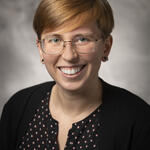 |
Emma Brennan-WydraResearch Associate, Child Study CenterEmma Brennan-Wydra is a data professional, social science researcher, and avid puzzler. In her current role as a data manager at the Yale Child Study Center, she helps transform clinical and experimental data into scientific knowledge about the social and emotional development of young children. Emma holds a Bachelor of Arts (BA) from Yale University and a Master of Science in Information (MSI) from the University of Michigan School of Information. Email Emma Brennan-Wydra |
 |
Tracy BrentTracy Brent CollectionsTracy Brent Collections (tracybrentcollections.com) is a women’s specialty clothing and accessories boutique located by the historic Guilford green in Connecticut. The boutique features casual, business and evening attire, unique jewelry and accessories from hot to haute. |
 |
Victoria BrescollSchool of ManagementVictoria Brescoll’s research focuses on the impact of stereotypes on individuals’ status and power within organizations, particularly for individuals who violate gender stereotypes. Her study “Can an Angry Woman Get Ahead? Gender, Status Conferral, and Workplace Emotion Expression,” published in Psychological Science, concluded that people reward men who get angry but view angry women as incompetent and unworthy of status and power in the workplace. The research was widely reported on in the popular press including the New York Times, Business Week, the Wall Street Journal, the Washington Post, National Public Radio, and U.S. News & World Report. Additionally, Professor Brescoll examines how having power may differentially affect men and women’s behavior at work. In 2012, she published a paper in Administrative Science Quarterly, “Who Takes the Floor and Why: Gender, Power, and Volubility in Organizations,” showing that, for men, there is a strong relationship between having power and talking a lot in organizational settings (e.g., the United States Senate), but for women, there is no such relationship. Her other research interests include the cultural origins of stereotypes (e.g. the media), corporate social responsibility, and framing messages to improve health policy. She received her MS, MPhil, and PhD in social psychology from Yale University where she was supported by a graduate research fellowship from the National Science Foundation. She completed her BA in psychology from the University of Michigan. In 2004, Professor Brescoll worked in the office of Senator Hillary Rodham Clinton under a Congressional Fellowship. |
Cynthia BrillBrill Journalism EnterprisesCynthia Brill came to Yale the first year that women undergraduates were admitted and graduated with a B.A. in Political Science in 1972. She worked briefly for the Mayor’s Office for The City of New York and then obtained a law degree (J.D.) from N.Y.U. in 1977. She practiced law as a commercial litigator for 5 years, before joining her husband in running The American Lawyer and Court TV as General Counsel. Since then, Cynthia has served as General Counsel in a variety of media businesses; the most recent is Journalism Online, which is a company providing software as a service to newspaper companies. Cynthis and her husband Steven Brill (Yale College 1972; Yale Law School 1975) have endowed the Yale Journalism Initiative, which provides an infrastructure of courses and professional assistance for students interested in pursuing careers in journalism. They have three children, two of whom graduated from Yale College (‘07, YLS ‘11 and ‘10). Email Cynthia Brill |
|
Bill BrownDigital Marketing and Graphic Design |

